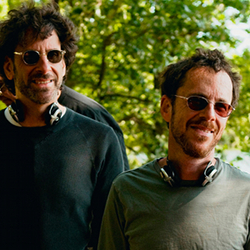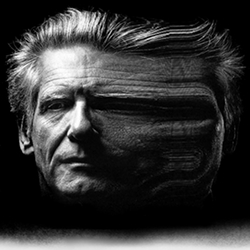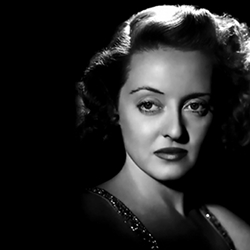Whistler Film Festival Review: Gabrielle (2013)
Cast: Gabrielle Marion-Rivard, Alexandre Landry, Mélissa Désormeaux-Poulin
Director: Louise Archambault
Country: Canada
Genre: Drama | Music | Romance
Official Trailer: Here
Editor’s Notes: The following review is part of our coverage of the 2013 Whistler Film Festival. For more information visit whistlerfilmfestival.com and follow WFF on Twitter at @whisfilmfest.
Gabrielle is a film about developmentally challenged young adults that meet at a community centre. Gabrielle (Gabrielle Marion-Rivard) and Martin (Alexandre Landry) sing in a choir set to perform with a locally famous singer, Robert Charlebois. There is little build-up as to why they fall in love, sometimes these things just happen. Not all love stories require a backstory or exposition. Their relationship progresses and Martin’s protective mother steps in to split up the two. Gabrielle’s sister Sophie (Melissa Desormeaux-Poulin) is more open-minded and encourages Gabrielle to pursue love. The film touches on love, independence and dependence, rebellion and happiness. Unfortunately, all of the above does not work because the film relies too heavily on Gabrielle’s handicap.
Gabrielle and Martin are in their early 20s. Gabrielle desires independence so she can be free and be with the man she loves. Sophie dabbles with providing Gabrielle with a shred of independence. Once Gabrielle gets a dose of freedom she unknowingly places herself in dangerous situations. Audiences may experience a collective vacuum effect as she turns a daily task into a near death experience. The material is heavy handed; there is no other way around it. Is the material required? Do such extremes need to be used to convey the message that she is not equipped to be alone? It’s an effective (if completely unnecessary) technique that manipulates the audience to feel specific emotions. Gabrielle lacks subtlety, leaving the audience with no room to interpret their feelings. The audience is on a specific road, and director Louise Archambault doesn’t allow anyone to leave the paved road.
The best performance in the film comes from Desormeaux-Poulin. She plays the role of Sophie incredibly well. Her performance is almost enough to rescue this film.
Let’s discuss the bright spots in the film. The central relationship can be charming at times. Marion-Rivard is a first-time actress; Landry only has one acting credit but he certainly seems more seasoned and natural in front of the camera. Gabrielle’s smile and charm is infectious. When the two of them sing, the film feels light-hearted and fun. The song selection tugs the heartstrings.
 The best performance in the film comes from Desormeaux-Poulin. She plays the role of Sophie incredibly well. Her performance is almost enough to rescue this film. She walks a fine line between protecting her sister and supporting her sister through a futile pursuit of independence. Sophie’s obligations to her sister interfere with her personal, professional and love life. Her story feels genuine and moving. Desormeaux-Poulin does a fine job with the material provided and her chemistry with Gabrielle is nothing short of wonderful. Sophie and Gabrielle’s relationship is the most believable in large part due to Desormeaux-Poulin’s performance.
The best performance in the film comes from Desormeaux-Poulin. She plays the role of Sophie incredibly well. Her performance is almost enough to rescue this film. She walks a fine line between protecting her sister and supporting her sister through a futile pursuit of independence. Sophie’s obligations to her sister interfere with her personal, professional and love life. Her story feels genuine and moving. Desormeaux-Poulin does a fine job with the material provided and her chemistry with Gabrielle is nothing short of wonderful. Sophie and Gabrielle’s relationship is the most believable in large part due to Desormeaux-Poulin’s performance.
Archambault and cinematographer Mathieu Laverdiere shot the film like a documentary. The documentary feel is designed to pull the audience in and give an organic feel: the style works for this film. It helps the actions on-screen feel more real, especially when the choir meets Charlebois for the first time.
It would be reckless to imply Archambault’s intentions were anything but sincere. Simultaneously, one can conclude the context of the film borders on offensive since Gabrielle’s handicap is used as a plot device to move along the story and evoke easy emotions from the audience. Much like the way Nicholas Sparks used Alzheimer’s disease to move audiences in The Notebook, Williams syndrome is used to move the audience in Gabrielle. The film is manipulative in the approach; the score and the emotional moments are a direct result of sympathy from Gabrielle’s condition.
When you boil down the film, it’s not that interesting. The forces between Gabrielle and Martin are paint by numbers and the film fails to make a statement. It feels like Archambault’s intention was to say that everyone deserves love, but the film just kind of exists for the duration of its runtime.
When you boil down the film, it’s not that interesting. The forces between Gabrielle and Martin are paint by numbers and the film fails to make a statement. It feels like Archambault’s intention was to say that everyone deserves love, but the film just kind of exists for the duration of its runtime. The ending is predictable and alarming that it ends without any form of conclusion. It appears most audiences enjoy the finale but it lacks a knockout punch. It lacks basic elements of storytelling. What was the point of the film?
Gabrielle is a labor of love that fails because it’s far too manipulative. It’s disrespectful to bash the audience over the head and state, “Here is where you laugh. Here is where you cry. Here is where you cheer.” The premise has much potential but the film treads water and drowns after 104 minutes. Some audiences will eat it up and praise the film; after all, Gabrielle won the Audience Award at the Locarno International Film Festival. Other audiences will be turned off by a filmmaker that doesn’t trust the audience enough to put together the film, draw their own conclusions and experience feelings without being told to do so. If Sparks films are your cup of tea give it a try, otherwise there is little to see here.
Related Posts
![]()
Adrian Charlie
![]()
Latest posts by Adrian Charlie (see all)






















